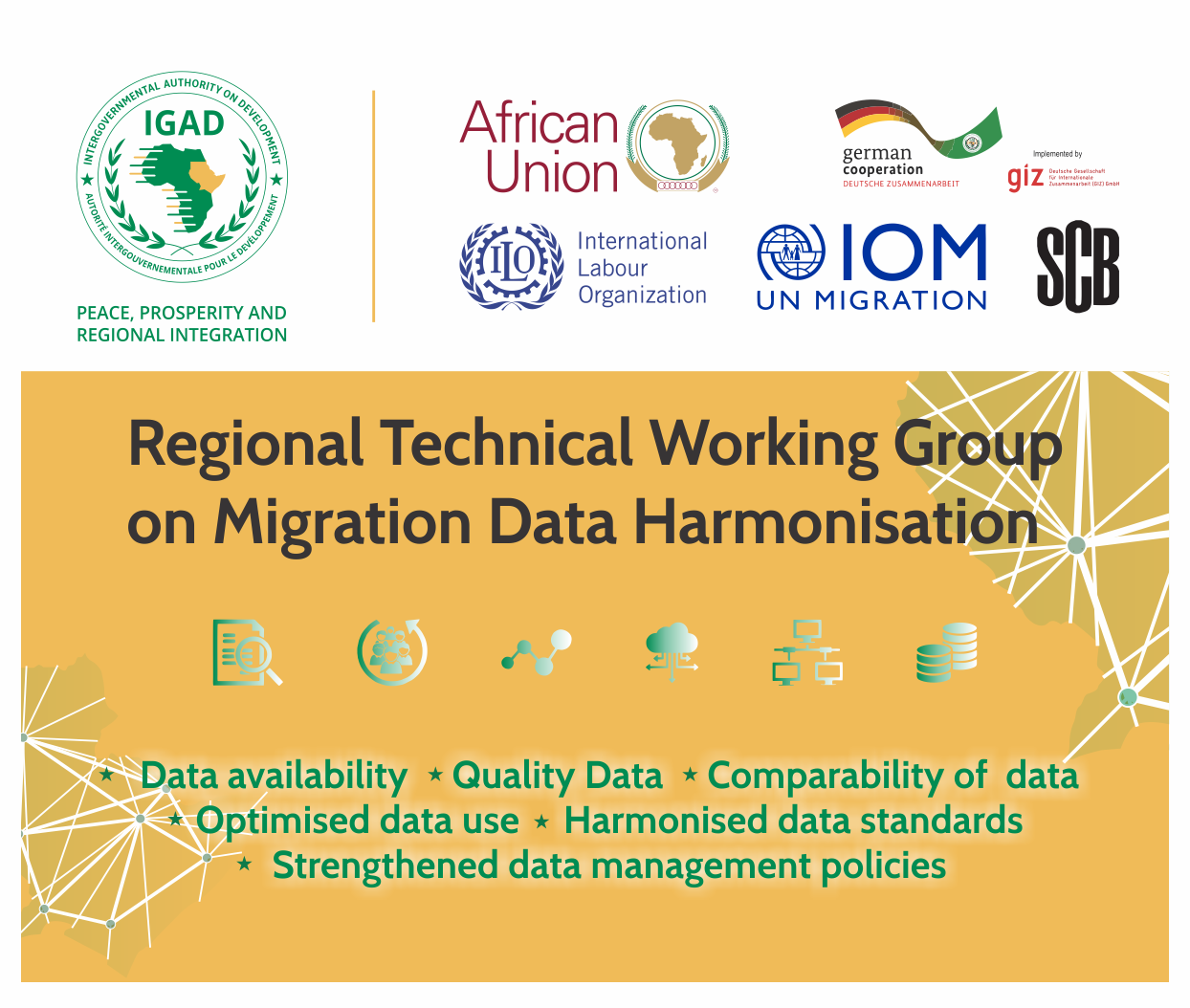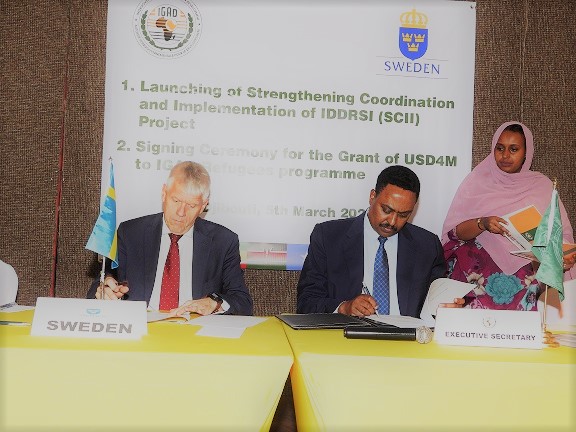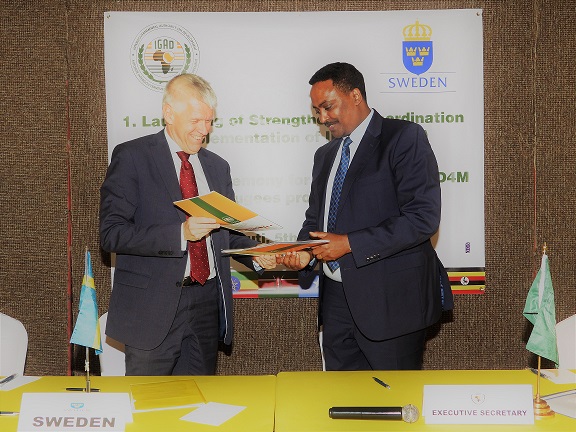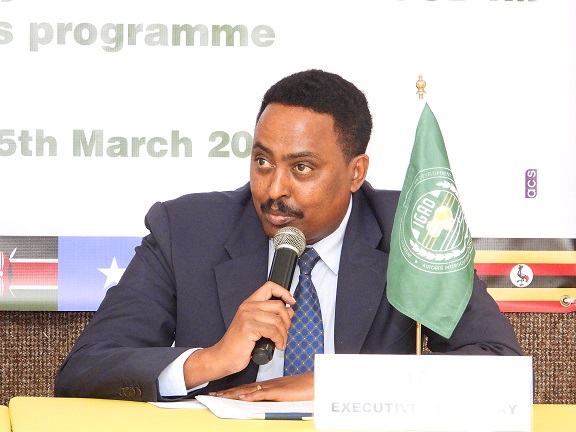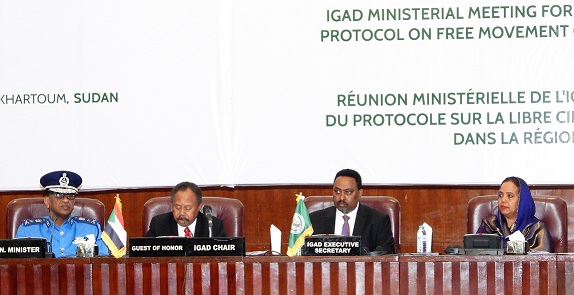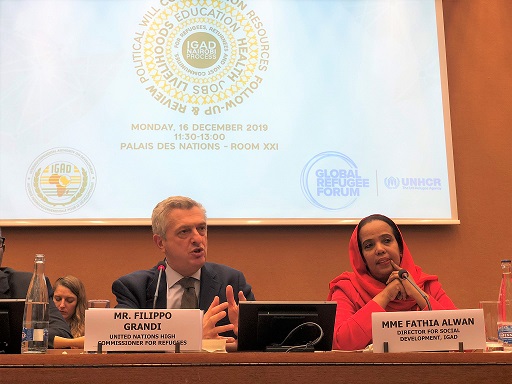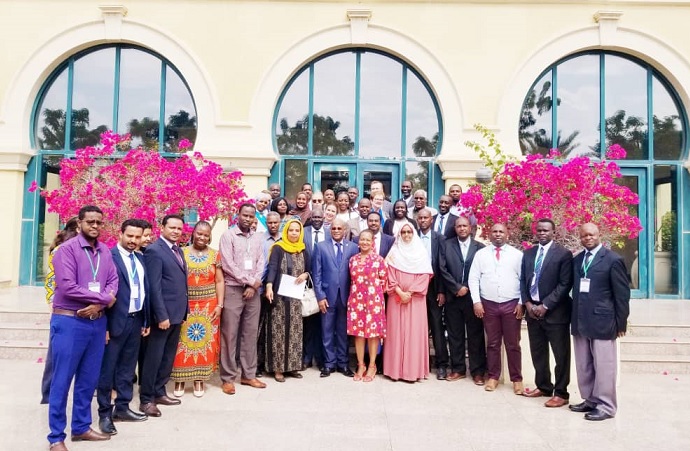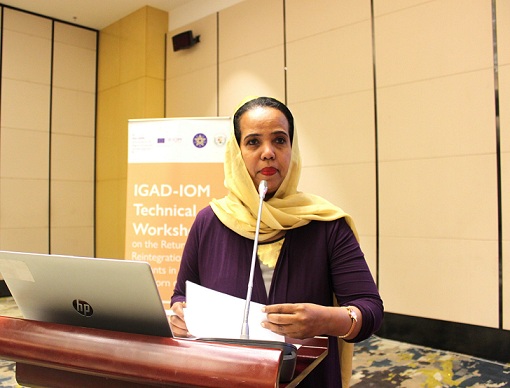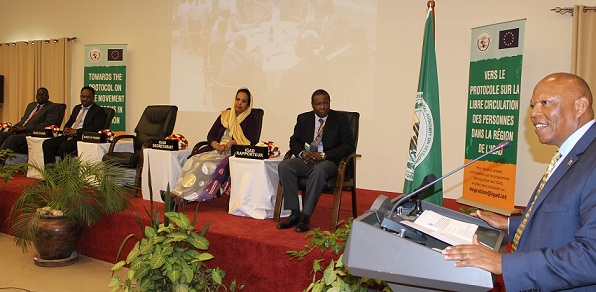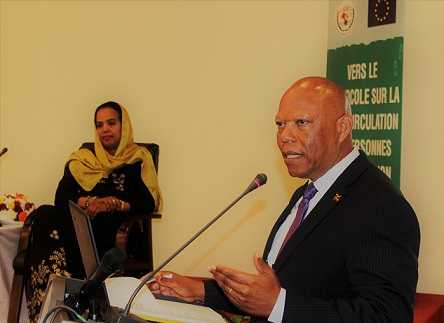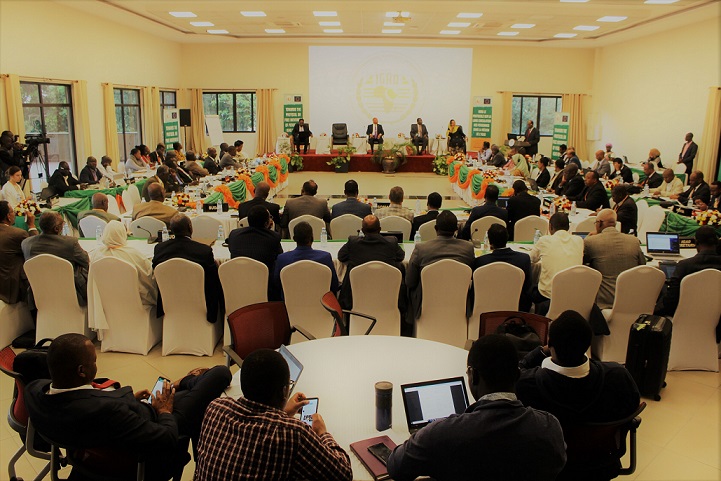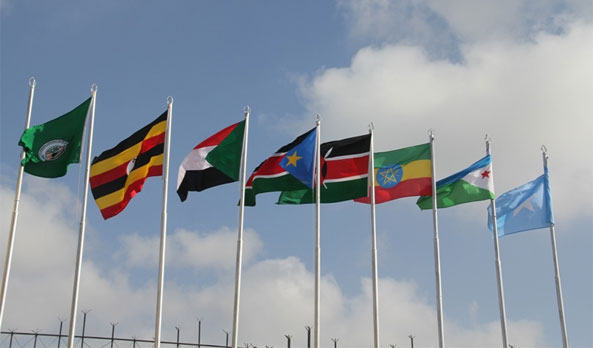IGAD launched consultations with Member States on the harmonization of production and utilization of migration data
July 1, 2020 (DJIBOUTI, Djibouti) - Timely, quality, disaggregated and harmonized migration data are required to inform effective migration management and good governance. On 3 June, the Intergovernmental Authority on Development (IGAD) held consultations with representatives of Kenya and Ethiopia, including migration focal persons of the National Statistical Office (NSO), Ministries of Labour, Ministries of interior, and Foreign Affairs. These were followed by consultations with representatives of the national governments of Somalia and Sudan on 17 June, and representatives of the government of Djibouti on 24 June. Final round of consultations included representatives of the governments of South Sudan, Uganda and the Republic of Tanzania on 1 July.
Following a workshop organized in Kampala, Uganda in August 2019, IGAD Member States acknowledged that existing migration data is fragmented across many government agencies and is rarely collected for statistical purposes. That led to the commitment to establish a regional technical working group (TWG) to facilitate the harmonization, comparability and accessibility of migration data building on existing good practices from other regions on the continent and intra-REC cooperation in the Eastern Africa region. This TWG will facilitate capacity development interventions on data collection and analysis of broader mobility issues, mainstream migration into development plans and national data collection efforts, and enable migration data exchange in the region.
Due to the outbreak of the COVID-19 pandemic, the planned workshop to establish the regional TWG in March 2020 had to be postponed. Owing to the circumstances, IGAD supported by its partners (IOM, ILO, GIZ, SCB and AUC) designed virtual consultations to keep up the momentum and continue the conversation in times of the pandemic. Through this process, Member States presented the impact of COVID-19 lockdowns and other restrictions on migration statistics including migration data collection and harmonization, shared updates on the status of establishing technical working groups (TWG) on migration data at the national level, and further provided feedback on the mandate and structure of the regional TWG on migration data.
The Director of the Health and Social Development, Fathia Alwan, stated “For improvement of production and utilization of migration data, there is need to have a coordinated approach amongst all stakeholders within the region. Key areas that need to be looked into include harmonization of migration data sources, concepts, methods and standards; data management; information flows and data exchange mechanisms; and optimization of migration analyses into national and regional development programming”.
The various representatives presented different strategies to strengthen migration data collection and harmonization, including migration modules in existing national data collection efforts (census and other national surveys), conducting dedicated migration surveys, as well as formalizing technical working groups to lead such processes under the National Coordination Mechanisms (NCM). NCMs are mandated to provide a one stop coordination platform for migration governance at sub-national, national, regional and international levels across IGAD countries. Multiple capacity development needs were identified, ranging from establishing Memorandum of Understandings (MoUs) for data sharing across government ministries, departments and agencies (MDAs), conduct trainings for primary migration data analysis, and support appointing migration data focal persons across MDAs to facilitate coordination on migration data management.
The IGAD representative mentioned that based on the ongoing consultations with the IGAD Member States, a regional virtual workshop on harmonization of migration data involving all the IGAD countries and Tanzania will be held in the month of July. Furthermore, the endorsement of the regional migration data TWG will strongly enhance coordination on migration data activities within the region. IGAD and partners will continue to closely collaborate with Member States to ensure that efforts to harmonize migration data and establish platforms to promote these initiatives will successfully progress.
Partners contributing this initiative include the IOM through the support of the Africa Regional Migration Program of the Bureau of Population, Refugees and Migrants (PRM) and the EU-IOM Joint Initiative for Migrant Protection and Reintegration in the Horn of Africa (EU-IOM JI); ILO as part of the Free Movement of Persons and Transhumance (FMPT): Improving Opportunities for Regular Labour Mobility project with support from European Union); GIZ commissioned by the Federal Ministry for Economic Cooperation and Development (BMZ); SCB project supporting IGAD and AU in development of capacity in migration statistics with support of Swedish International Development Cooperation Agency. These efforts realign with the AU - Second Strategy for the Harmonization of Statistics in Africa (SHaSA II) as the Continental Strategy for the Development of Statistics in Africa.


